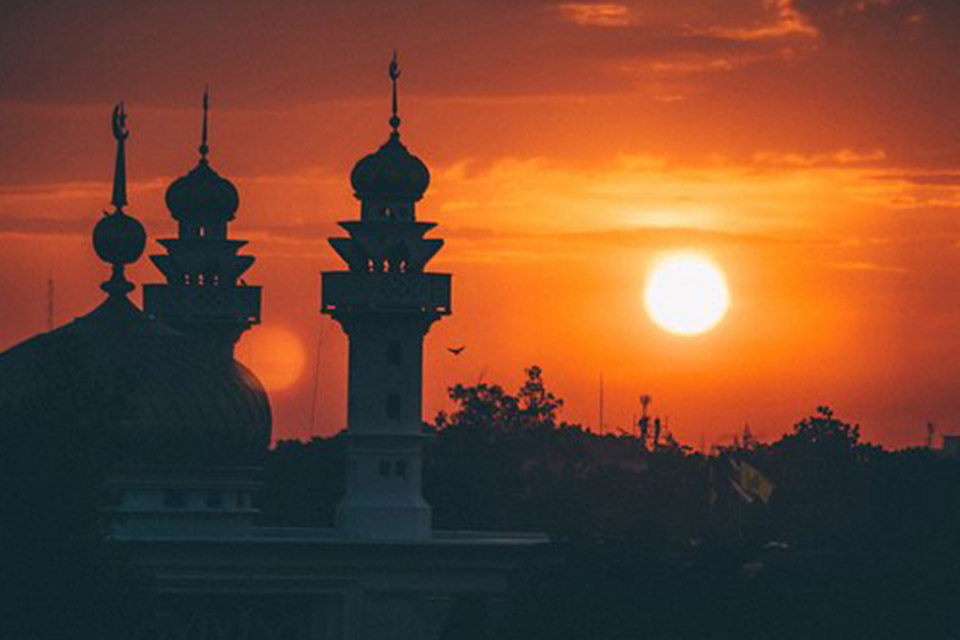Azhar Vadi | Opinion | First published in 2009 on Facebook.
The explosive like sounds could be heard in the distance this evening. Kaboom, kaboom they went off, marking the beginning of the Diwali season, a really holy and special time for followers of the Hindu faith around the world. In South Africa, Hindus mark this time of year with the bursting and lighting of firecrackers.
Some of them create spectacularly psychedelic visual displays lighting up the skies of Lenasia, south of Johannesburg, while others rupture with a thunderous boom. As the first few fire strings burnt out tonight, officially turning neighbourhoods into aural warzones, my son lay in bed telling me how difficult he is going to find falling off to sleep amid all the noise. His subtle and innocent complaint however reminded me of another incident regarding noise levels not too long ago.
During the month of Ramadhan, a time during which Muslims fast, I noticed another trend that could possibly cause an inconvenience to others. Shortly after the suhoor morning meal at dawn, the muaddhin or callers to prayer, call the faithful to the mosques of Lenasia for the Fajr (dawn) prayer. Now Lenasia is an area that fills a small space of roughly 5km X 10km. In this space there are more than 30 significant mosques each fitted with a sound system and microphone to allow for the adhan or prayer call to be made to the residents closest to the mosque.
Note well that the call to the Fajr prayer this year was usually around 5am. What I noticed was that from where I stay, which is in the southern end of Lenasia, I could quite audibly hear the adhans emanating from mosques kilometers away on the opposite end of town. One particular mosque in a neighbouring extension seemed to have actually turned up the sound level and the caller, in a particularly hard voice, seemed to scream into the microphone.
For me living at some distance away it was extremely loud. I remember telling my wife as we cleaned up after the morning meal that I hope the sound does not wake up the kids. They were suffering from a severe bout of flu and had not slept easily that night. Now that their tiny eyes finally gave way to rest, a prayer place of peace and contentment, could result in their unrest and awakening. One can only dare to imagine what the noise level must have been for the residents of the particular area because for me it sounded as if the mosque’s speakers were fitted to my garage wall.
As a Muslim I’m supposed to understand the significance of the call to prayer – and I do. It is a practice of the Prophet Muhammad (SAW) and all the rightly guided people after him. But I doubt that he ever had his muaddhin, Bilaal (RA), call the adhan in such away as to offend anybody. Have we as Muslims ever considered the fact that we live in a multi-cultural and ethnic community and that consideration should be given to others around us.
At the mosque I attend, Masjid Ashraf in Lenasia ext 11b, the adhan for the early morning Fajr prayer is not called on the loudspeaker. It is called using the voice of the muaddhin only so as to prevent the disturbance to members of the community of different faiths.
In the same way exploding firecrackers may annoy me, so may excessively loud adhans at the wee hours of the morning cause an inconvenience others. I suppose the flip side to the debate is that as I tolerate the sounds of the firecrackers and other holy incantations from places of worship so should others respond to the adhans of the world.
Do not for moment think that I oppose the giving of the adhan over a speaker system. No. All I’m saying is, let the adhan inform the people closest to the mosque that it’s time for prayer and not those kilometers away. Train the muaddhins to give the adhan in a most pleasant manner. Especially in a place like Lenasia that has been blessed with so many mosques.
